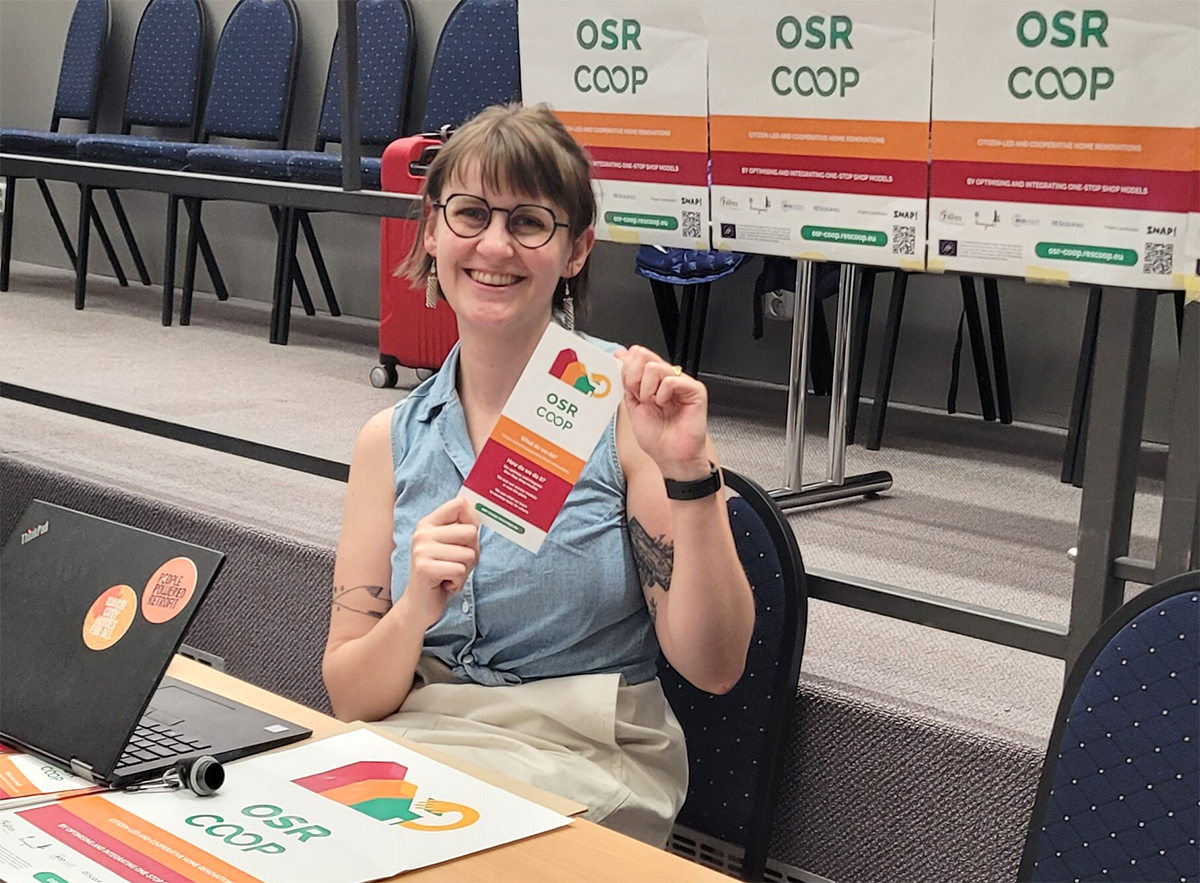Stories
July success story: Home renovations following the seven cooperative principles
Community energy is key to action on the climate crisis. It can empower people, boost local economies, and reinvigorate communities. Community-led initiatives play an important role in the transition towards a 100% renewable and just energy future. Success stories of community energy projects can be found all over Europe. At REScoop.eu we want to highlight these stories to further accelerate the movement towards a cleaner and democratic system.
This month, we travel to Ireland on 6 July to celebrate the International Day of Cooperatives with EcoVision, a community-owned cooperative dedicated to citizen-led renovations.
Renovations in the hands of citizens
EcoVision, formerly known as Energy Communities Tipperary Cooperative, was established in 2015 by four local communities to carry out energy efficiency projects for old homes and community buildings in County Tipperary, Ireland. Since then, they have upgraded more than 900 houses and 50 community and commercial buildings, saving over 10 GWh of energy, the equivalent of the average annual electricity consumption of more than 2,300 Irish households.
Home renovations allow inhabitants to save energy, reduce their energy bills, and enhance their comfort. When these renovations are carried out following the seven cooperative principles, they offer additional benefits. As a non-profit organisation, EcoVision provides impartial advice and can offer better prices than profit-driven organisations. With the long-term social transformation of communities in Clare, Limerick and Tipperary as its main objective, EcoVision prioritises local contractors, boosting the local economy and creating employment in the area. Moreover, it supports other community projects in the region.
EcoVision pioneered citizen-led renovations with a one-stop-shop approach in Ireland. This model, developed organically by EcoVision, provides an integrated solution for home renovation services, simplifying the process for customers and guiding them throughout the entire renovation journey.
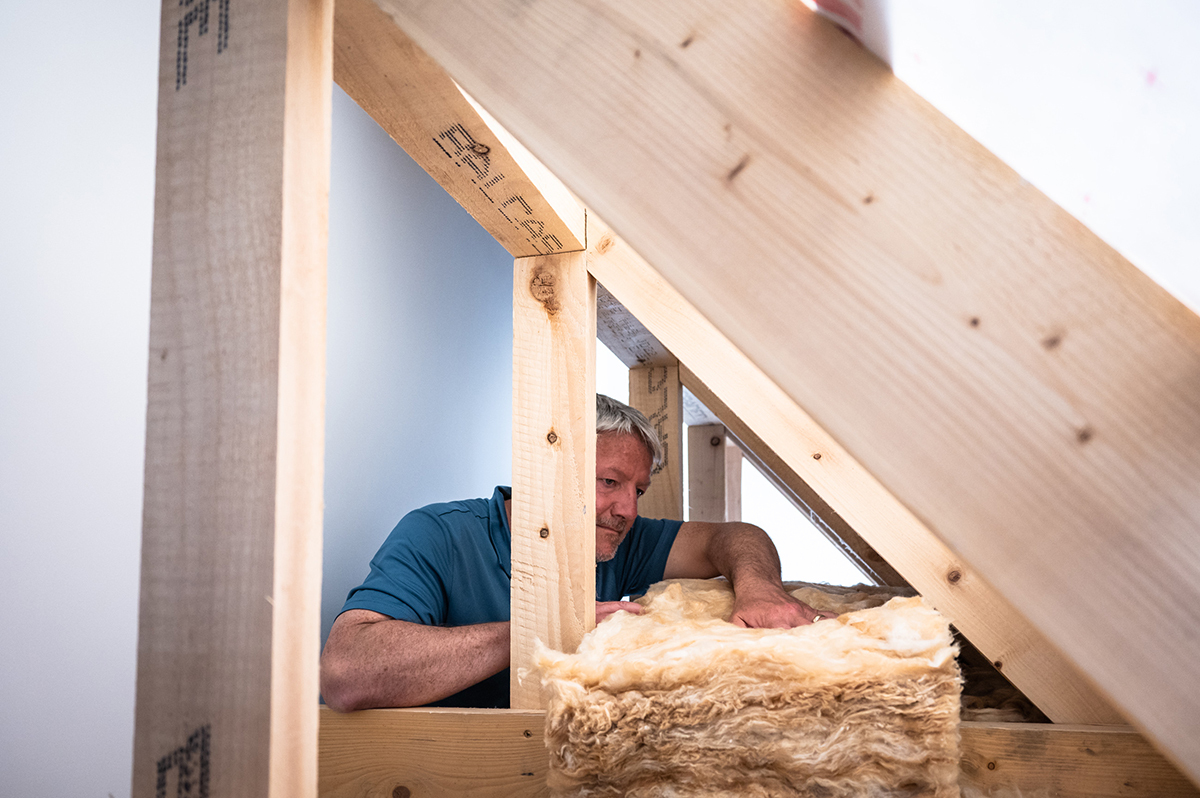
A project based on cooperative principles
A volunteer board of directors oversaw EcoVision’s activities for many years. However, in 2022, due to the growth in the number of members and activities, the board deemed it necessary to recruit a general manager. Máirtín Ó Méalóid, previously the general manager of the development cooperative of Cape Clear Island, was chosen for the position. Máirtín decided to join EcoVision because its ethos aligned with his own: the cooperative principles.
Despite being registered as a company limited by guarantee – a legal structure usually used by non-profit companies in Ireland – EcoVision operates according to the cooperative principles. “It is a cooperative in principles, structure, and action,” Máirtín notes, and emphasises that “the legal structure isn’t important; what is important is how we function, behave, and treat our members, staff, and other citizens.”
For Máirtín, the cooperative principles mean “working together as a collective of equals to improve the lives of the community and build a better and more sustainable society for everyone”.
Today, the volunteer board of directors steers EcoVision activities, while Máirtín handles the daily management, reporting to the board in monthly meetings. In the transformation from Energy Communities Tipperary Cooperative to EcoVision, a number of changes have been made to the cooperative’s statutes to allow for a broader membership. Beginning in autumn 2024, on top of the annual general meeting, there will be three online open member meetings per year to facilitate information exchange. This governance system ensures democratic member control, in line with the second cooperative principle.
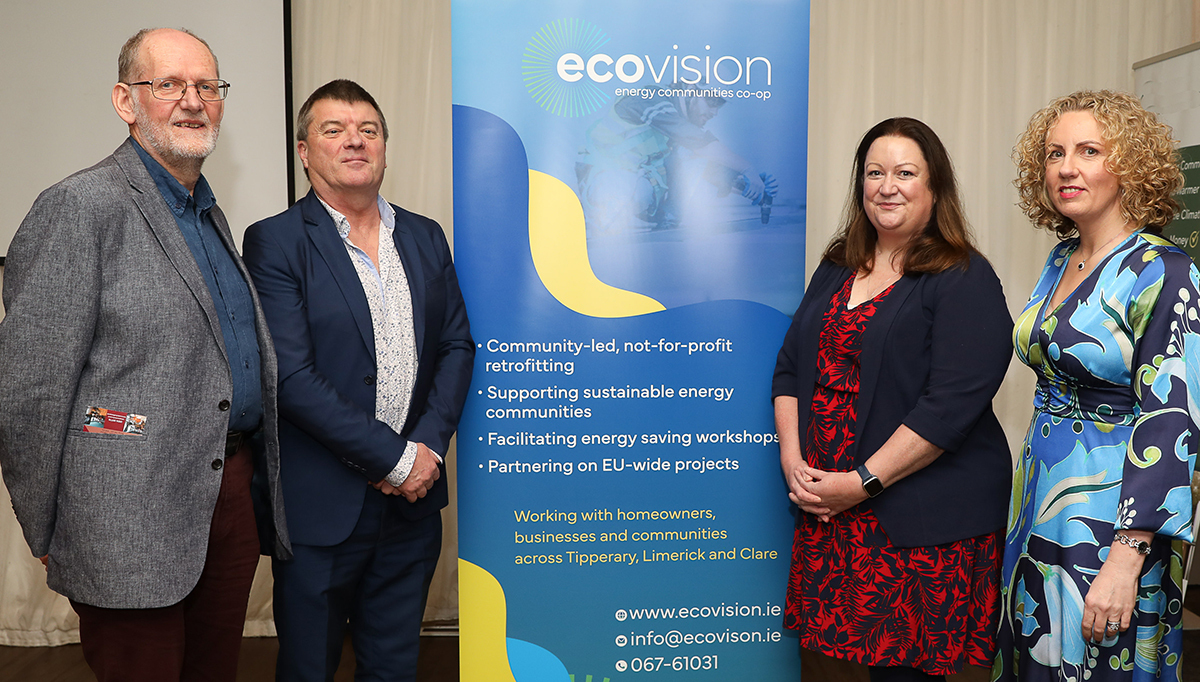
Concern for community
Like many cooperatives, EcoVision is a non-profit organisation, but Máirtín clarifies this concept.
“Profit is not a bad word. If you are not making a profit, you are making a loss, and then you are finished. You have to make profit, but what’s important in a social enterprise is what you do with that profit. At EcoVision, it goes back into the cooperative development and to our community fund, which helps our community member organisations with energy projects.”
For example, in Lorrha, a village within one of the member communities where the last shop closed years ago, EcoVision contributed to the energy aspects of a building renovation to host a new community shop and café. Last month, they also installed solar PV on the roof to supply the shop and café with solar energy.
This perfectly exemplifies the seventh cooperative principle: “Cooperatives work for the sustainable development of their communities through policies approved by their members.”
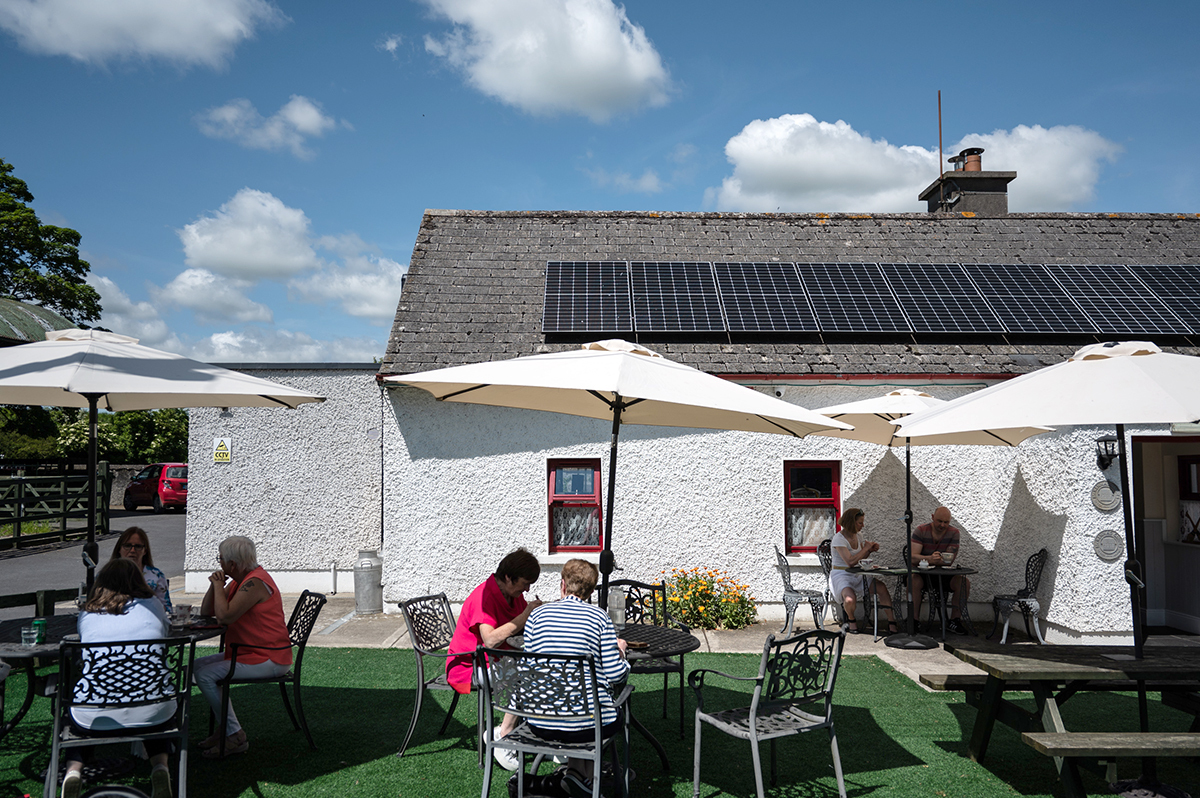
Education, training and information
EcoVision also adheres to the fifth cooperative principle regarding education, training and information for staff, members and the general public. One of its main services is helping citizens access renovation grants from the Sustainable Energy Authority of Ireland (SEAI). When working with new contractors, the cooperative offers upskilling in sustainable renovations and organises workshops on the technical requirements of the SEAI funding programmes.
EcoVision’s Energy Saving Champion Programme focuses on the general public. They train energy saving champions who then guide people in their community on how to best reduce domestic energy consumption and improve energy efficiency.
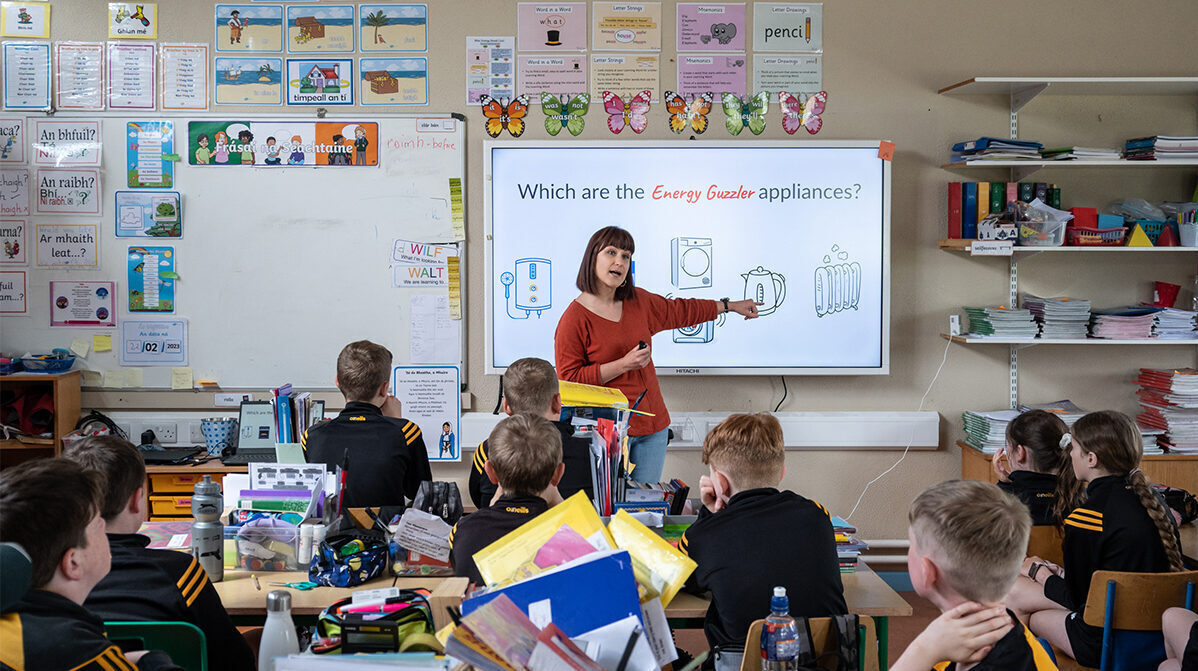
Replicating the citizen-led renovation model
When asked for advice to other cooperatives aiming to get involved in citizen-led renovations, Máirtín draws on the sixth cooperative principle, which refers to the cooperation among cooperatives.
“My advice would be to look at the work of cooperatives. There’s no need to reinvent the wheel. Organisations like EcoVision, People Powered Retrofit in the UK, Energent in Belgium, and Les 7 Vent in France are already doing citizen-led renovations. Together we are trying to advance cooperative One-Stop Shop building renovation services in Europe through the OSR-Coop project. I invite people to follow the project and join our capacity building activities.”
Máirtín also mentions REScoop.eu’s citizen-led renovation working group, where REScoop.eu members collaborate and share knowledge, experience, and best practices on deep and shallow renovations.
